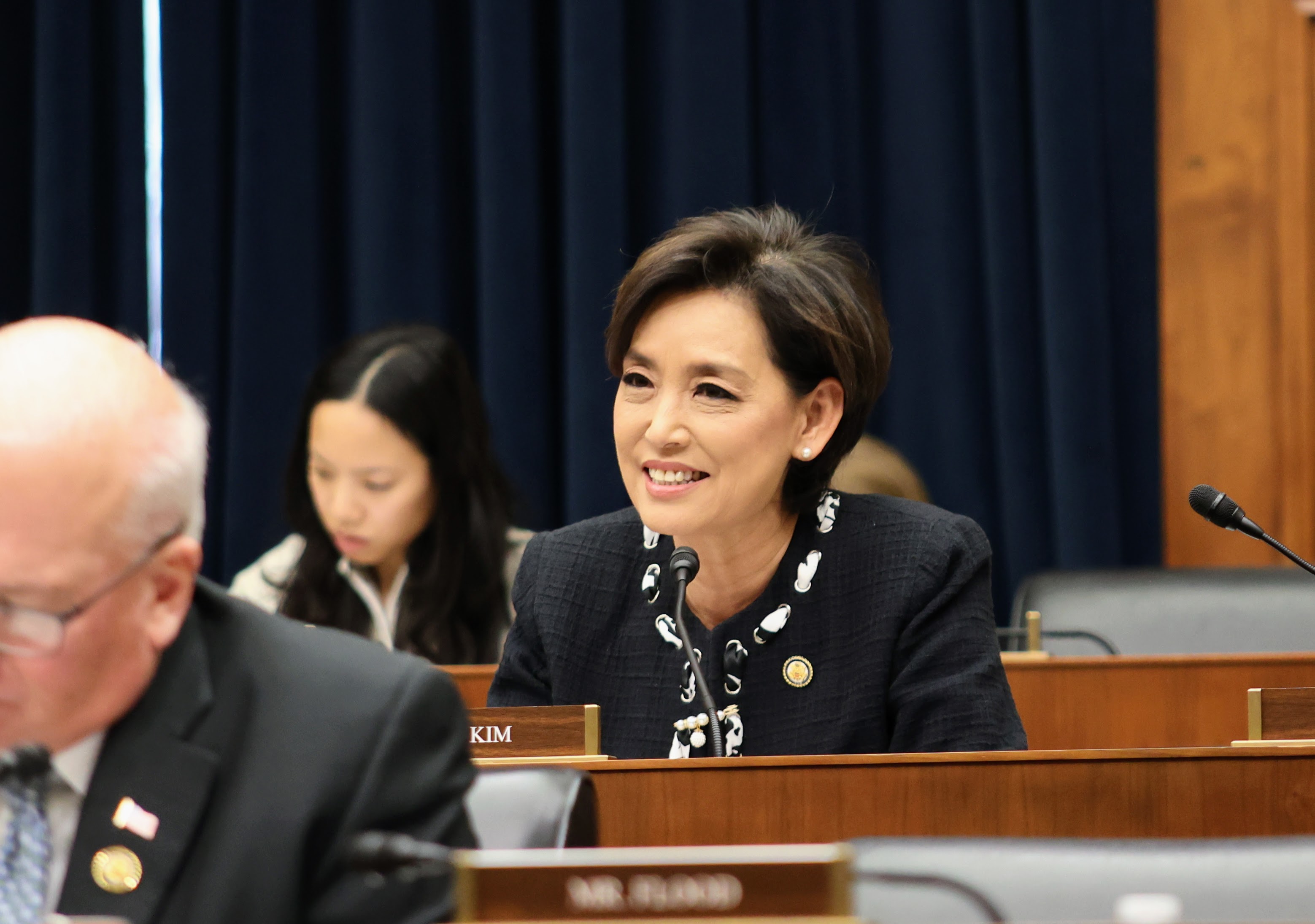The California Republican Party held its Spring Organizing Convention over the weekend, projecting an optimism bolstered by the current effort to recall Governor Gavin Newsom and recent congressional victories.
Sidestepping some minor dissent in the ranks over the process of endorsing a recall candidate, and the status of a California Republican congressman who voted to impeach President Donald Trump, party leaders delivered a confident message over Zoom calls during the virtual event.
“Our California Republican comeback is just getting started,” said CA GOP Chairwoman Jessica Millan Patterson, who was reelected Sunday by state party delegates. In a speech following the vote, Patterson pledged to follow through with the Newsom recall “to save our great state,” and to help win back the House of Representatives for Republicans.
“He has failed to lead. He has failed to govern. He has failed the people,” Patterson said of Newsom. “Not only is he a failure, but he is the worst kind of hypocrite: arrogantly telling us how to live our lives while blatantly refusing to do the same.” Patterson was referring to the governor attending a dinner party at a Napa restaurant while the state was under lockdown.
Removing a sitting Democratic governor and — if things go the GOP’s way — seating a conservative chief executive is the stuff Republican dreams are made of. Candidates are already circling. But Newsom’s fate as possibly only the second California governor to appear on a recall ballot is hardly a done deal.
Sponsors of the recall effort had submitted almost 1.1 million signatures to county election officials as of Feb. 5, according to an updated report released by the Secretary of State’s office on Friday. Of those, 668,202 signatures had been verified, 130,108 were rejected, and 296,147 remained to be checked.
To get a recall on the ballot, organizers must collect just under 1.5 million verified signatures by March 17. If the signature acceptance rate of close to 84% holds, sponsors will need to hit a mark of nearly 1.8 million total submissions to safely clear the bar to trigger a recall.
The two primary groups working to round up the necessary signatures say they’re on track and have roughly 1.7 million total collected.
Their efforts have benefited from unprecedented conditions during the coronavirus pandemic: In November, a federal judge granted recall backers an additional 120 days to collect signatures due to public health concerns, four months beyond the 160 days petitions normally have to circulate.
Public sentiment has also shifted as voters confront virus fatigue and frustration with state safety measures. According to a U.C. Berkeley poll released earlier this month, Newsom’s job approval has crashed to 46%, compared to 64% a few months earlier. Another poll by the Public Policy Institute of California painted a rosier picture, with Newsom netting a 54% approval rating.
A state political party’s organizing convention is typically a wonky affair, and this was no different. Much of the weekend was devoted to the adoption of a slate of party rules and elections for local and statewide leaders.
One source of potential drama was rapidly quashed during the General Assembly on Sunday, when party delegate Erik Elness of Brentwood tried to bring up a motion to censure Central Valley Rep. David Valadao over his vote to impeach then-President Trump after his supporters stormed the U.S. Capitol on Jan. 6. Valadao joined nine other House Republicans in the most bipartisan impeachment process in history.
“You’re out of order,” said Patterson, interrupting Elness as he attempted to raise the censure issue. His Zoom line was promptly muted.
Patterson previously withdrew another controversial rule change that would have allowed the state party’s 100-person executive committee to choose a GOP candidate to endorse in the recall, instead of putting the vote to all of the roughly 1,400 members of the delegation.
National Republican stars such as Governor Kristi Noem of South Dakota, Florida Senator Rick Scott, strategist Karl Rove and Rep. Elise Stefanik of New York dropped by the convention (virtually) to rally delegates.
“[Governor Newsom] had all the same information that I had throughout this pandemic, he just made completely different decisions,” Noem said in a recorded video played on Sunday. “And he also impacted families and devastated businesses that will long be felt after this pandemic is over.”
Critics on social media were quick to point out that South Dakota’s COVID-19 death rate per 100,000 residents ranks 8th in the nation, compared to California’s status at 34th nationally for deaths per capita.
Many guest speakers touted the party’s Nov. 2020 wins in several purple House districts that it lost during the “blue wave” two years earlier.
“I don’t think it’s an accident that for the first time since California became a state in 1850, Republicans flipped four seats in the U.S. House of Representatives in California,” said Rove, crediting the state GOP with recruiting a diverse field of candidates, such as Korean Americans Young Kim and Michelle Steel in Orange County and Mike Garcia in north L.A. County.
“You did it,” Rove added, “by showing the face of the future Republican party to Latino men and to Asian American women.”




